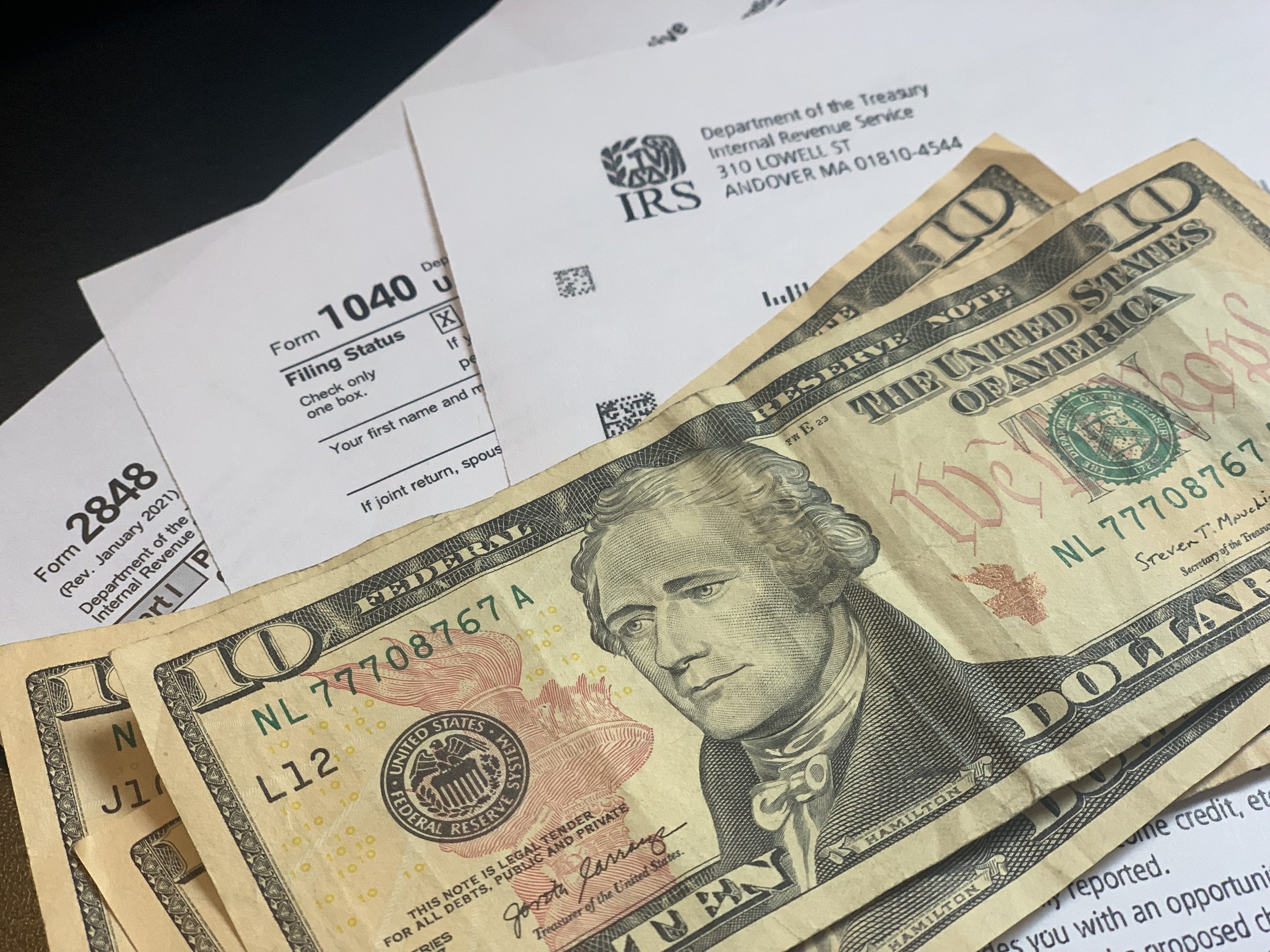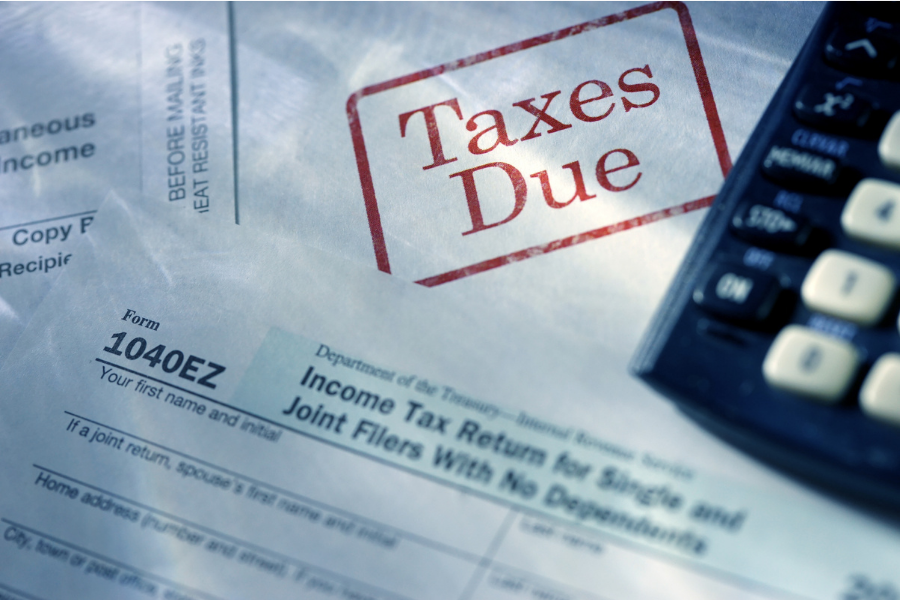How to Spot a Fake IRS Letter
The IRS is still sending out letters related to 2020 tax returns and you might be wondering if the letter you’ve received is legitimate and not a scam. The short answer is to verify directly with the IRS if the notice is requesting personal information or a payment for back taxes, but there’s also other signs that the letter you received isn’t really from the IRS. Here’s how you can spot a fake IRS letter.
What a real IRS will look like
An IRS envelope will include the IRS logo and the letter will have your tax ID number, and either a notice number (CP) or letter number (LTR) on either the top or bottom right-hand corner of the page. The letter will also include your rights as a taxpayer (something a scammer is unlikely to include). The letter will be sent to you for a few reasons:
- You have a balance due.
- You are due a larger or smaller refund.
- The IRS has a question about your tax return.
- The IRS needs to verify your identity.
- The IRS needs additional information from you.
- The IRS has changed your tax return.
- The IRS is notifying you of delays in processing your return.
A real IRS letter will never demand immediate payment or otherwise pressure you into giving out your personal information. If you are asked to pay back taxes, you will always be given steps to appeal your payment first. You’ll never be asked to make payments directly to the “IRS”—instead, payments will always be made to “United State Treasury”, which you can do by visiting www.irs.gov (and if the letter mentions gift cards? That’s a BIG RED FLAG, that’s a scam!).
When in doubt, verify with the IRS directly
Since IRS logos and letters can be faked easily, if you have any doubts that the letter is real, you can verify your account status by reviewing your tax account on the IRS website. Once you have reviewed your account and have determined that there is no balance due, you can report the fake IRS notice to the Treasury Inspector General of Tax Administration and with the IRS directly at phishing@irs.gov.
If you need help with your tax problems or have any questions, please reach out to our office at (207) 888-8800.
IRS stimulus check update: No, those recovery rebate credit error letters are not a scam
Over the last few weeks, an untold number of taxpayers have been confused by the arrival of not one but two letters from the Internal Revenue Service.
The first letter (CP11, CP12, or CP13) notified taxpayers that the IRS had made changes to their tax returns. Because of these changes, the taxpayer either owes money, is due a refund (or their refund amount changed), or now has a balance of zero.
So far, so good, right?
However, the confusion for many began with the arrival of a second notice (letter 6470), which referenced the first letter, notified recipients they had a right to appeal the first letter, and then apologized for not mentioning the appeal part the first time around. These second letters began arriving in people’s mailboxes recently, leading many taxpayers to speculate on social media and in Facebook groups whether they might be a scam.
They’re not a scam. The IRS had previously sent out about 5 million faulty “math error notices” that neglected to inform taxpayers of their right to appeal. Specifically, these notices were sent to people who claimed the recovery rebate credit—that’s the credit that lets you claim your stimulus checks if you were eligible but never received one. In the vast majority of cases, the math error notices were likely informing people that they weren’t eligible for a recovery rebate that they’d tried to claim, or that the rebate amount would be smaller.
But because the math error notices didn’t inform taxpayers of their full legal rights, the IRS had to basically eat crow and resend letters to every single one of those people, notifying them of their right to appeal, and apologizing for the omission. That’s what letter 6470 is all about.
It’s important to note, however, that the original math error notices were not invalidated because of the omission. In other words, if you truly did make a miscalculation on your tax return—and you’re not actually eligible for a recovery rebate credit—responding to letter 6470 isn’t going to make a difference. In fact, the letter clearly states, “If you agree with the changes we made, you don’t need to take further action.”
If you’ve double checked your math and still believe you’re entitled to the credit, you have to appeal within 60 days, but you will very likely have to provide documentation to prove your eligibility. The best thing to do is call the number provided on the letter and start there. If you are not able resolve this issue, please contact our office at (207) 888-8800.
IRS would track all bank transactions over $600 under Biden's proposed plan
The Biden administration has made clear its plan to beef up IRS auditing by expanding the agency’s funding and power. Biden’s latest proposal would require banks to turn over to the Internal Revenue Service bank account information for all accounts holding more than $600.
This major component of President Joe Biden’s plan to raise revenue to pay for his trillions of dollars in new federal spending is now under fire from trade associations across the country.
In a sharp rejection of the proposal, more than 40 trade associations, some of which represent entire industries or economic sectors, signed a letter to U.S. House Speaker Nancy Pelosi, D-Calif., and Minority Leader Kevin McCarthy, R-Calif., raising the alarm about the plan.
The letter, which includes the support of several banking coalitions, calls on Congress to reject that requirement, saying it violates customer privacy and would create an incredibly expensive and elaborate reporting requirement for the banks.
“While the stated goal of this vast data collection is to uncover tax dodging by the wealthy, this proposal is not remotely targeted to that purpose or that population,” the letter said. “In addition to the significant privacy concerns, it would create tremendous liability for all affected parties by requiring the collection of financial information for nearly every American without proper explanation of how the IRS will store, protect, and use this enormous trove of personal financial information. We believe that this program is costly for all parties, not fit for purpose, and loaded with potential for unintended and serious negative consequences.”
The groups argue it would target "almost every American" and question whether the IRS could keep that information secure from hackers and bad actors.
“The undersigned associations representing a cross-section of financial and business interests write to express our strong opposition to a proposal under consideration as part of the reconciliation package that would establish an expansive new tax information reporting regime that would directly impact almost every American and small business with an account at a financial institution," the letter said. "This proposal would create significant operational and reputational challenges for financial institutions, increase tax preparation costs for individuals and small businesses, and create serious financial privacy concerns. We urge members to oppose any efforts to advance this ill-advised new reporting regime."
Some reports indicate that Democrats hope to raise the $600 threshold, but that has not yet materialized.
Biden proposed giving an extra $80 billion to the IRS earlier this year for auditing, saying the agency would more than make back those funds. House Democrats’ have so far indicated they plan to fulfill that request.
“There’s a 99 percent compliance rate on wages – because wage earners get their earnings reported to the IRS,” a fact sheet says that was handed out by the White House to lawmakers to sell them on the plan. “But the super wealthy who get their income from unreported sources are able to hide their income and avoid paying the tax they owe. In fact, each year the top 1 percent chooses not to pay more than $160 billion in taxes.”
Republicans on the House Ways and Means Committee have scheduled a virtual roundtable Wednesday entitled, “Weaponization of the IRS: A Sordid History and the Need for Taxpayer Protections” to discuss these concerns.
“The meeting will highlight the efforts of congressional Democrats to nearly double the size of the IRS with a massive funding increase while doing nothing to address the weaponization of the IRS, including the massive, criminal leak of taxpayer information to ProPublica in June of this year,” Texas Republican Rep. Kevin Brady’s office said.
This isn’t the only business community criticism to be levied at the $3.5 trillion bill in recent days.
The U.S. Chamber of Commerce officially condemed the bill this week, calling it an “existential threat” to the economy.
“This reconciliation bill is effectively 100 bills in one representing every big government idea that’s never been able to pass in Congress,” U.S. Chamber of Commerce President and CEO Suzanne Clark said. “The bill is an existential threat to America’s fragile economic recovery and future prosperity. We will not find durable or practical solutions in one massive bill that is equivalent to more than twice the combined budgets of all 50 states. The success of the bipartisan infrastructure negotiations provides a much better model for how Congress should proceed in addressing America’s problems.”


